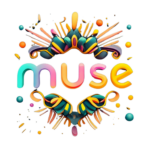In the fast-paced and ever-evolving landscape of the digital age, businesses are increasingly recognizing the need for a paradigm shift in their marketing strategies. The advent of the internet, social media, and advanced technologies has ushered in a new era, necessitating a Digital Marketing Transformation.
Digital Marketing Transformation refers to the comprehensive overhaul of traditional marketing strategies to align with the digital ecosystem. It involves leveraging digital technologies and channels to connect with target audiences, build brand presence, and drive business growth.
This transformation is not merely about adopting new tools; it requires a cultural shift within organizations to embrace agility, data-driven decision-making, and customer-centricity.
Key Components of Digital Marketing Transformation
Data Analytics and Insights:
Businesses are now collecting and analyzing vast amounts of data to gain insights into customer behavior, preferences, and market trends. This data-driven approach enables marketers to make informed decisions, personalize customer experiences, and optimize marketing campaigns for better results.
Content Marketing:
Creating valuable, relevant, and engaging content is crucial for building brand authority and connecting with audiences. Content marketing involves the strategic creation and distribution of content across various digital platforms to attract, educate, and retain customers.
Social Media Marketing:
Social media platforms have become powerful channels for connecting with audiences and building brand communities. Digital Marketing Transformation involves leveraging social media to engage with customers in real-time, share content, and gather valuable feedback. It also includes paid social advertising to reach specific target demographics.
Search Engine Optimization (SEO):
SEO is essential for ensuring that a brand’s online presence is easily discoverable by search engines. A well-optimized website and content contribute to higher rankings, increased visibility, and improved organic traffic. Digital Marketing Transformation involves staying updated on search algorithms and continuously optimizing content for search engines.
Marketing Automation:
Automation tools streamline marketing processes, allowing businesses to scale their efforts and personalize interactions with customers. Marketing automation includes email marketing, lead nurturing, and other workflows that enhance efficiency and effectiveness in reaching target audiences.
Navigating Digital Marketing Transformation
- Training programs and workshops can help employees stay updated on the latest digital marketing trends and technologies.
- Adopting agile methodologies allows organizations to respond quickly to market changes and customer feedback.
- Understanding customer needs and preferences is crucial for creating relevant and impactful marketing campaigns.
- Collaboration between marketing, sales, IT, and other departments is essential for a holistic and successful transformation.
Conclusion
Digital Marketing Transformation is not just a trend; it’s a strategic imperative for businesses looking to thrive in the digital age. By embracing data-driven decision-making, leveraging digital channels, and prioritizing customer experience, organizations can position themselves for success in an increasingly competitive landscape. The journey toward digital transformation may be challenging, but the rewards in terms of brand relevance, customer engagement, and business growth make it a worthy pursuit for any forward-thinking organization.

